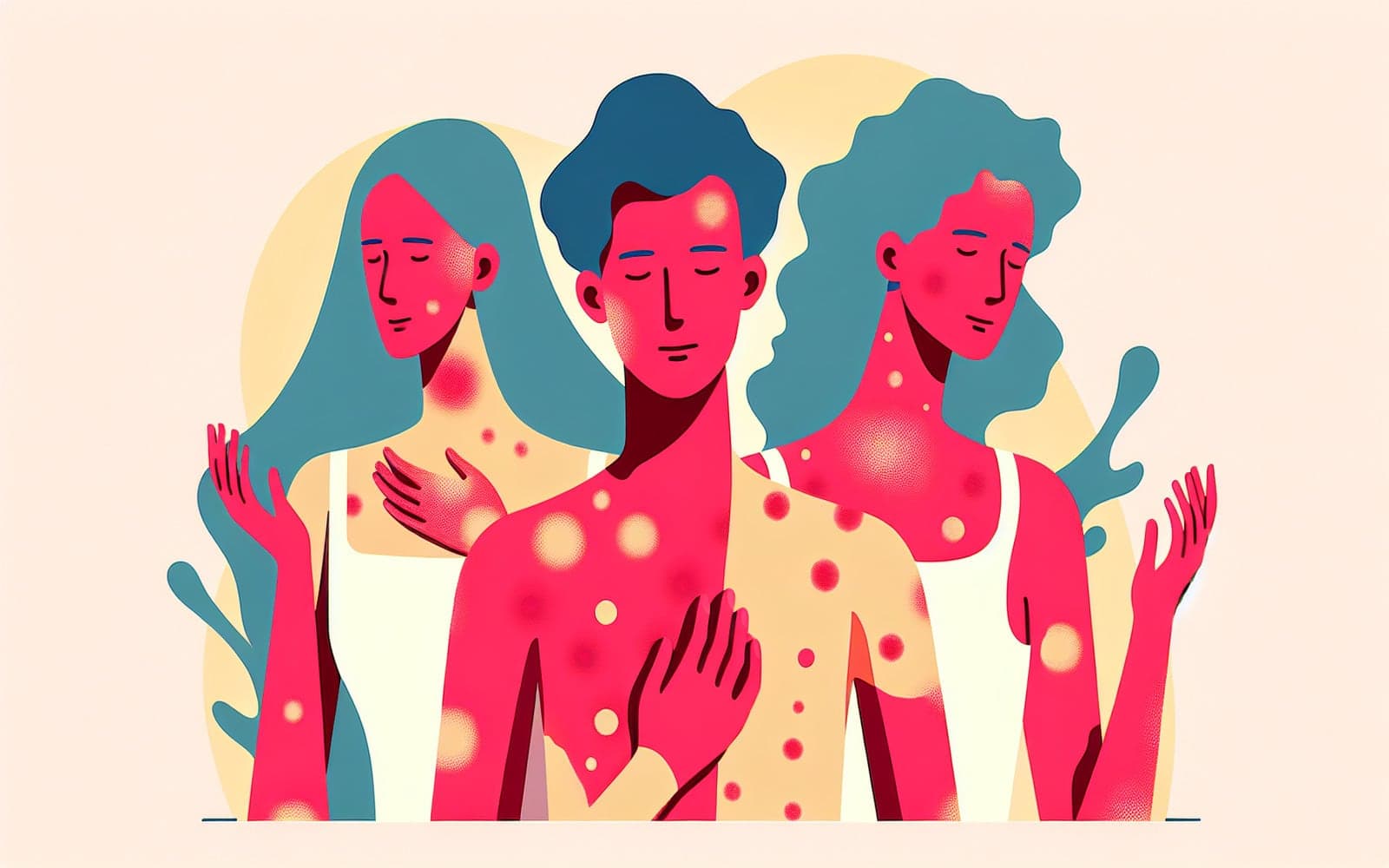Beyond the Itch: Surprising Symptoms of Chronic Spontaneous Urticaria
Published: Aug 15, 2024
Chronic spontaneous urticaria (CSU) is known for causing itchy hives, but it can affect more than just your skin. Many people with CSU experience a range of other symptoms that aren't as well-known.
Contents
The Classic Signs
The hallmark symptoms of CSU are recurring hives (red, itchy welts) and angioedema (swelling under the skin). Hives typically appear and disappear within 24 hours, while angioedema can last longer. These symptoms come and go for at least 6 weeks without an obvious trigger.
Surprising Systemic Symptoms
Many people with CSU report systemic symptoms beyond skin issues. These can include fatigue, headaches, joint pain, and gastrointestinal problems. In one study, about 66% of CSU patients experienced systemic symptoms. These symptoms often correlate with more severe disease.

The Emotional Toll
CSU can significantly impact mental health and quality of life. Many patients report high levels of stress, anxiety, and depression related to their condition. The unpredictable nature of flare-ups can lead to social isolation and decreased work productivity.
Frequently Asked Questions
Some patients report low-grade fever during flares.
Yes, itching can disrupt sleep for many patients.
Rarely, but unexplained weight loss needs evaluation.
Many patients report increased itching at night.
Key Takeaways
Understanding the full range of CSU symptoms is crucial for proper diagnosis and management of this complex condition.
Experiencing unusual symptoms with your hives? Discuss your concerns with Doctronic to get personalized insights.Related Articles
- What Is Chronic Spontaneous Urticaria? The Mysterious Skin Condition Explained
- The Mystery Unraveled: What Really Causes Chronic Spontaneous Urticaria?
- Cracking the Code: How Doctors Diagnose Chronic Spontaneous Urticaria
- Breaking the Itch Cycle: Innovative Treatments for Chronic Spontaneous Urticaria
References
Doong JC, et al. J Allergy Clin Immunol Pract. 2017;5(5):1314-1321.
O'Donnell BF, et al. Br J Dermatol. 1997;136(2):197-201.
Always discuss health information with your healthcare provider.

